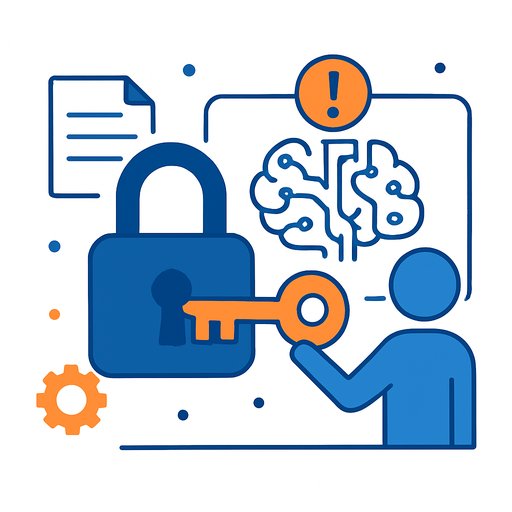Lagrange x Toku: AI-First, Proof-First Payroll With Stablecoins
Lagrange has partnered with Toku to bring proof-first payroll to production. The idea: AI agents calculate, execute, and prove every payroll step using stablecoins, with cryptographic receipts that validate correctness without exposing sensitive data.
Toku contributes tax and compliance coverage for token-based compensation. Lagrange supplies verification via its DeepProve framework, enabling zero-knowledge backed attestations for calculations, transfers, and withholdings. The result is autonomous, verifiable, and transparent payroll flows.
What's new for engineering and ops
"Proof-first" means the system doesn't just execute; it produces verifiable evidence that each action followed policy and math. AI systems become accountable by default: every output pairs with a receipt you can check on demand.
Stablecoins act as the native currency for AI execution, improving cross-border speed and traceability. With policy changes (including the referenced GENIUS Act) accelerating digital-asset usage, this model positions enterprises to pay globally while meeting compliance requirements.
How the stack fits together
- Inputs: HRIS data, time tracking, contracts, vesting schedules, on-chain events, FX rates, and withholding rules.
- Policy engine: Encodes employment terms, jurisdictional tax logic, and caps/limits.
- Proof system (Lagrange DeepProve): Generates zero-knowledge receipts for each step: calculation, withholding, net pay, and transfer routing.
- Settlement: Stablecoin transfers to employee wallets or custodial accounts with proof-linked transaction IDs.
- Compliance (Toku): KYC/AML, tax forms, reporting, and rule updates that feed the policy engine.
- Observability: Dashboards and APIs to query proofs, payment status, and exception queues.
Developer blueprint to implement
- 1) Define data contracts: employee profile, pay period, accruals, tax jurisdiction, wallet metadata, and payout preferences.
- 2) Encode policies: orchestration that maps inputs into deterministic calculations (gross → deductions → net → wallet routing). li>3) Integrate DeepProve: construct circuits for input integrity, rule adherence, and amount correctness. Output a proof artifact per pay run.
- 4) Gate execution on proofs: transfers only execute if proofs verify. Log a proof ID alongside transaction hashes.
- 5) Emit receipts: store proof summaries for audits. Provide employee-facing and auditor-facing views with scoped detail.
- 6) Handle exceptions: build fallbacks for stale oracles, proof timeouts, and wallet errors; queue and re-verify before re-run.
Security and compliance notes
- Trust boundaries: proofs attest that inputs were unaltered, policies were applied, and outputs match the policy math.
- Privacy: zero-knowledge hides sensitive fields while still enabling verification.
- Verification: keep verifiers in CI/CD for pre-flight checks; offer on-chain or off-chain verification depending on cost and latency.
- Key management: isolate signing keys, use HSM/KMS or MPC, and bind signatures to verified proof IDs.
- Regulatory: Toku supplies KYC/AML and tax handling; ensure your data residency and retention align with your jurisdictions.
Operational benefits you can measure
- Lower reconciliation overhead: each payment has a machine-checkable receipt.
- Deterministic compliance: tax and withholding proofs remove guesswork.
- Faster cross-border settlement: stablecoins reduce delays and fees.
- Audit on demand: cryptographic evidence replaces manual sampling.
Risks and tradeoffs to plan for
- Proof latency: complex circuits can add seconds to minutes; parallelize and cache where possible.
- Oracle integrity: lock sources, sign feeds, and record versions used in proofs.
- Stablecoin risk: assess issuer risk, liquidity, and chain congestion; define circuit-breakers for depeg scenarios.
- Change management: treat policy updates as code; version circuits and policies together.
Practical use cases
- Recurring payroll for global teams with localized tax handling.
- Contractor and bounty payouts with proofed deliverables and milestone logic.
- DAO and open-source contributor payments with trust-minimized verification.
- Revenue sharing, vesting, and micro-payments with audit-ready receipts.
Why this matters
Most payroll issues stem from opaque calculations, manual review, and fragmented systems. By binding AI-driven execution to cryptographic verification and compliant rails, teams get speed and assurance without giving up privacy.
This partnership turns payroll into an agentic workflow: calculate, verify, settle, and prove-end to end.
Resources
Your membership also unlocks:






